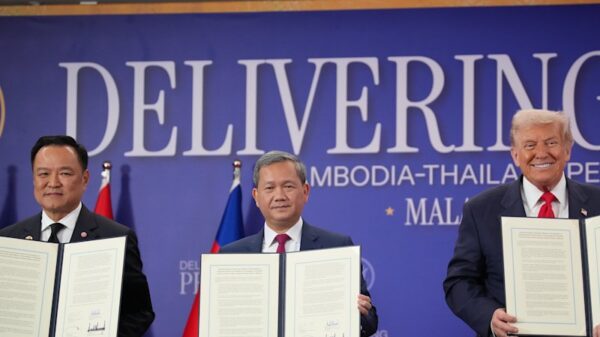A campaign led by the group Hobson’s Pledge has reignited discussions around the phrase “We are now one people” as it seeks to eliminate Māori wards from local governance in New Zealand. These wards are designed to ensure Māori representation, an issue that has historically faced challenges. The upcoming local body elections will feature referendums where voters will decide the fate of these wards.
The campaign has attracted significant attention, particularly due to the controversial use of a Māori woman’s photograph on Hobson’s Pledge billboards, accompanied by the line, “My mana doesn’t need a mandate – vote no to Māori wards.” This incident has overshadowed deeper questions surrounding the historical claims made by the group in their opposition to Māori representation in local councils.
At the heart of Hobson’s Pledge’s argument is the assertion that the phrase “We are now one people,” or in Māori, “He iwi tahi tātou,” carries both moral and constitutional weight. The group interprets this as a directive from Lieutenant-Governor William Hobson, purportedly spoken during the signing of the Treaty of Waitangi in 1840. They contend that this statement serves as a political mandate to treat all New Zealanders equally, irrespective of ethnicity.
The campaign’s narrative has gained traction since its inception in 2016, aiming to counter what they perceive as a misinterpretation of the Treaty that supports Māori “privilege” and promotes “race-based” policies. Nonetheless, the historical reliability of Hobson’s supposed statement is contentious.
The only existing evidence for Hobson’s utterance of “He iwi tahi tātou” comes from William Colenso, a Church Missionary Society printer, in his account, *The Authentic and Genuine History of the Signing of the Treaty of Waitangi*. This account was published in 1890, four decades after the signing. Colenso claimed that his recollections were based on notes taken during the event, but subsequent research suggests that his account should be approached with caution.
Experts have pointed out that none of the references attributed to James Busby, another key figure present at the signing, appear in Colenso’s original manuscript from 1840. While Colenso asserts that Hobson spoke in Māori, the English translation he provides, “We are [now] one people,” is noted in parentheses, indicating it was added later. This nuance is often overlooked in Hobson’s Pledge’s materials, which omit the parentheses, implying Hobson spoke the English translation directly.
Furthermore, no contemporary records corroborate Colenso’s claims about Hobson’s statement. A parliamentary request for a translation by William Baker in 1865 did not mention any pledge made by Hobson or provide any support for Colenso’s claims. The interactions between Hobson and the Māori rangatira during the signing are minimally documented, focusing instead on Hobson’s concerns regarding the behavior of British subjects in New Zealand.
The interpretation of “He iwi tahi tātou” as a pledge appears to lack historical grounding. It seems more likely that Hobson intended to convey a message of politeness. Importantly, there are no surviving accounts from the Māori chiefs regarding their thoughts on becoming “one people” at that time. The Māori population was around 80,000, while the European settlers numbered approximately 2,000, suggesting an entirely different context of identity.
Colenso’s writings reveal significant concerns and divisions among Māori chiefs regarding signing the Treaty. While Hobson’s phrase has gained prominence, other critical lines from Colenso’s account, which discuss the Governor’s intentions regarding land, have not been emphasized in the current debate.
To label Hobson’s words as a “pledge” lacks historical accuracy and stems from a missionary’s translation of Māori phrases that cannot be independently verified. A more linguistically accurate translation of “He iwi tahi tātou” might be “We are peoples together,” which reflects the complexities of Māori identities and the ongoing discussions surrounding the Treaty today.
These issues highlight the need for a nuanced understanding of New Zealand’s history and its implications for contemporary governance. As the debate over Māori wards continues, the historical context surrounding the Treaty of Waitangi remains a critical focal point.





























































